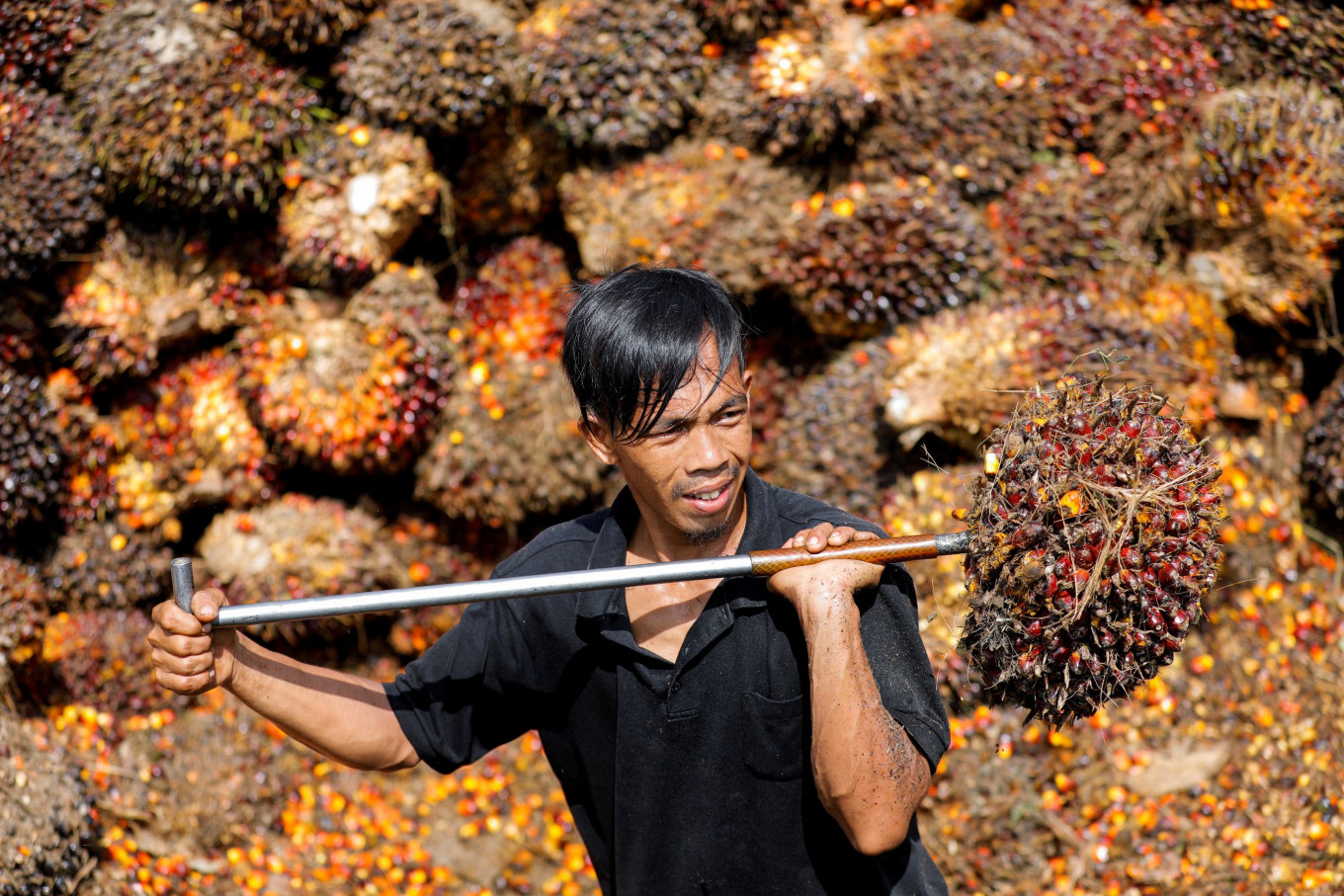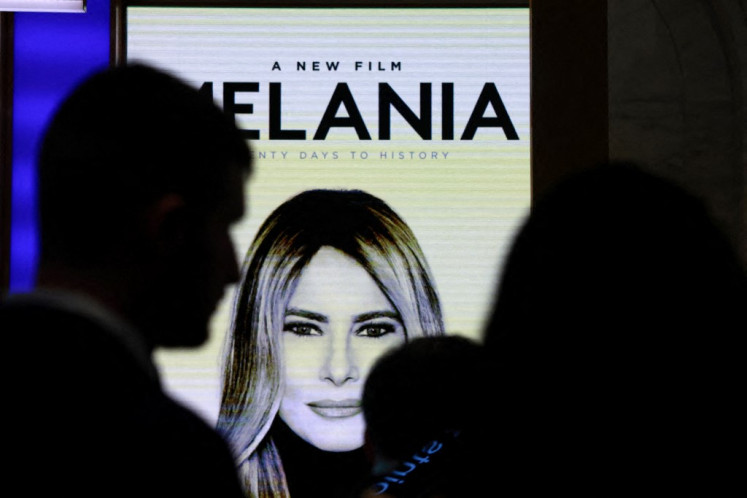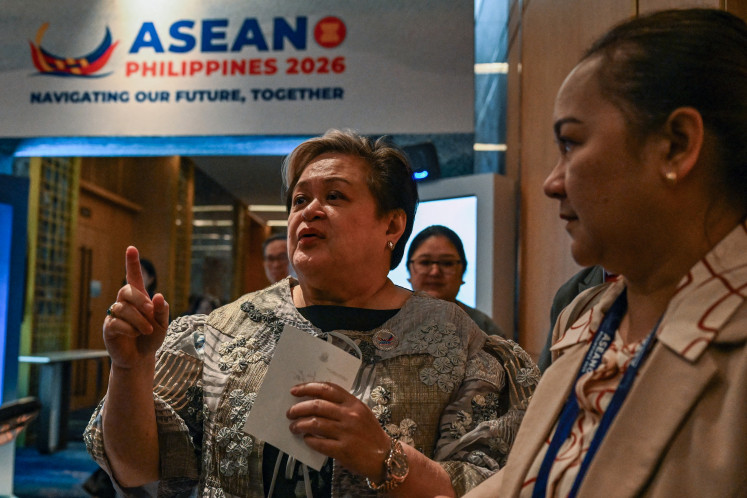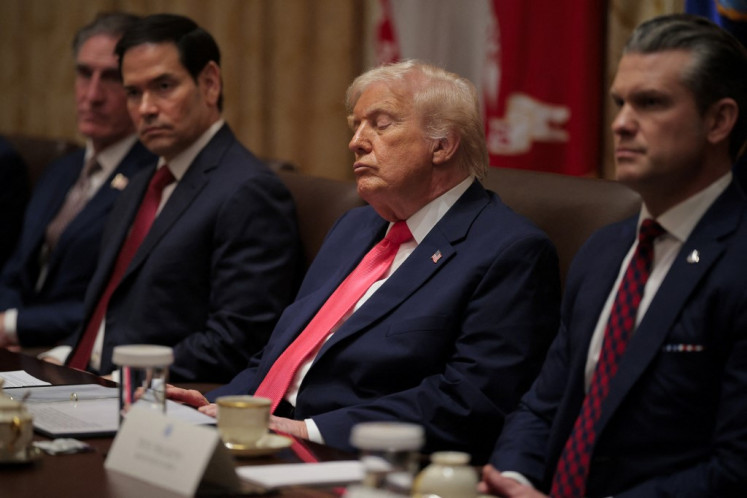Popular Reads
Top Results
Can't find what you're looking for?
View all search resultsPopular Reads
Top Results
Can't find what you're looking for?
View all search resultsEU brands just four countries as 'high risk' under deforestation law
Countries including Brazil and Indonesia, which have historically had among the world's highest rates of deforestation, will be labelled as "standard risk", which means they will face lighter compliance checks on goods exported to Europe.
Change text size
Gift Premium Articles
to Anyone
C
ommodities from just four countries will face the strictest checks under the European Union's anti-deforestation law, with major forest nations including Brazil and Indonesia spared the toughest rules.
The European Commission said in an act published on Thursday that the law would categorize goods imported from Belarus, Myanmar, North Korea and Russia as having a "high risk" of fueling deforestation.
Countries including Brazil and Indonesia, which have historically had among the world's highest rates of deforestation, will be labelled as "standard risk", which means they will face lighter compliance checks on goods exported to Europe.
The world-first law will impose due diligence requirements on companies placing products including soy, beef, palm oil, timber, cocoa, coffee and chocolate onto the EU market. It has been staunchly opposed by countries including Brazil and Indonesia, who say it is burdensome and costly.
A key difference between the groups is that EU countries will be required to carry out compliance checks covering 9 percent of companies exporting from high-risk countries, 3 percent from standard-risk countries and 1 percent for low-risk countries.
The United States was among the countries labelled as "low-risk", meaning its companies must still collect information on their supply chains, but not assess and address deforestation risks.
Companies in high risk and standard risk countries will need to show when and where the commodities were produced and provide "verifiable" information that they were not grown on land deforested after 2020.
The Indonesian Palm Oil Association (GAPKI) said the EU should have branded the world's largest palm oil exporter Indonesia as a low-risk country, along with the US, China, Thailand and Australia.
"The EU did not see Indonesia's achievement in significantly reduced deforestation rate in recent years," GAPKI secretary general Hadi Sugeng Wahyudiono said, adding that due diligence on shipments would increase cost and reduce palm oil's competitiveness.
Campaigners criticized the EU decision to impose the strictest checks on only four nations, but said even lower-risk countries would face some, albeit simpler, due diligence obligations.
"In practice, this shouldn't undermine the power of this law to save forests," said Giulia Bondi, campaigner at non-profit group Global Witness.
Rainforest Foundation Norway (RFN) was less optimistic and urged the EU to strengthen controls.
"It is simply unbelievable that Brazil, responsible for 42 percent of tropical forest loss in 2024, more than a doubling since the previous year, is not rated as high risk," said RFN director Toerris Jaeger, citing a recent report from Global Forest Watch.
The Commission said it had labelled countries based on scientific evidence and data.
The EU law will apply from the end of 2025 for large companies, and from June 2026 for small firms. Failure to comply could result in fines of up to 4 percent of a company's turnover in an EU country.










